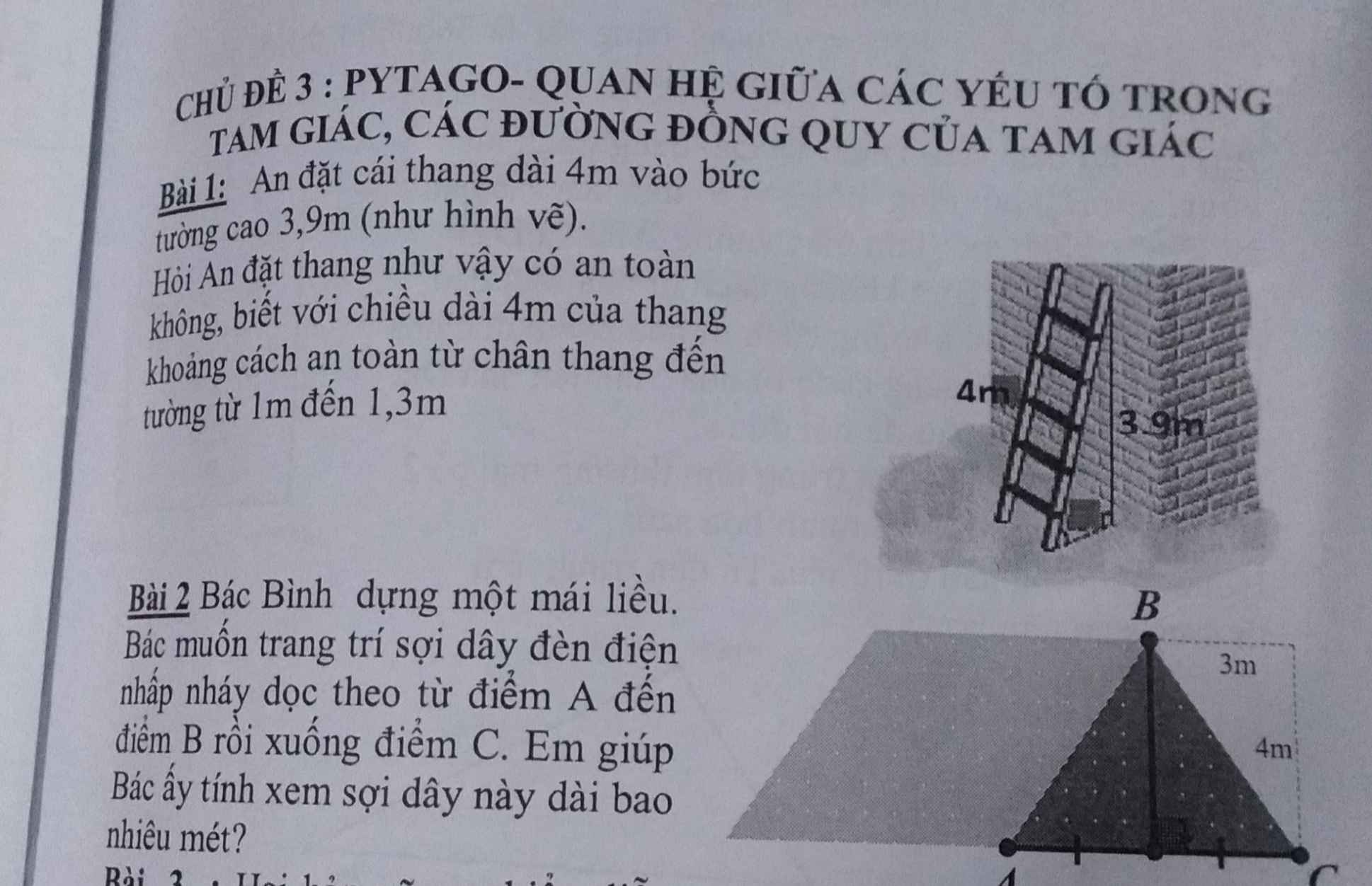
Hãy nhập câu hỏi của bạn vào đây, nếu là tài khoản VIP, bạn sẽ được ưu tiên trả lời.


b, \(\left(5x+1\right)^2=\frac{36}{49}\)
\(\Rightarrow\left(5x+1\right)^2=\left(\frac{6}{7}\right)^2\)
\(\Rightarrow5x+1=\frac{6}{7}\)
\(\Rightarrow5x=\frac{-1}{7}\)
\(\Rightarrow x=\frac{-1}{35}\)

\(\left(\dfrac{1}{4}\right)^{2n}=\left(\dfrac{1}{8}\right)^2\)
\(\Rightarrow\left(\dfrac{1}{2}\right)^{2.2n}=\left(\dfrac{1}{2}\right)^{3.2}\)
\(\Rightarrow\left(\dfrac{1}{2}\right)^{4n}=\left(\dfrac{1}{2}\right)^6\)
\(\Rightarrow4n=6\)
\(\Rightarrow n=\dfrac{6}{4}=\dfrac{3}{2}\)

\(\left(\dfrac{1}{2}\right)^n=\left(\dfrac{1}{8}\right)^2\)
\(=>\left(\dfrac{1}{2}\right)^n=\left[\left(\dfrac{1}{2}\right)^3\right]^2\)
\(=>\left(\dfrac{1}{2}\right)^n=\left(\dfrac{1}{2}\right)^6\)
\(\Rightarrow n=6\)

a) Vì \(-45< -16\) nên \(\left(-\dfrac{45}{17}\right)^{15}< \left(\dfrac{-16}{17}\right)^{15}\)
b) Vì \(21< 23\) nên \(\left(-\dfrac{8}{9}\right)^{21}< \left(-\dfrac{8}{9}\right)^{23}\)
c) \(27^{40}=3^{3^{40}}=3^{120}\)
\(64^{60}=8^{2^{60}}=8^{120}\)
Vì \(3< 8\) nên \(3^{120}< 8^{120}\) hay \(27^{40}< 64^{60}\)
con ai kooooooooooooooooooooooooooooooooooooooooooooooooooooooooooooooooooooooooooooooooooooooooooooooooooooooooooooooooooooooooooooooooooooooooooooooooooooooooooooooooooooooooooooooo

Vì |2x-3| - |3x+2| = 0
Suy ra |2x-3|=|3x+2|
Ta có 2 trường hợp:
+)Trường hợp 1: Nếu 2x-3=3x+2
2x-3=3x+2
-3-2=3x-2x
-2=x
+)Trường hợp 2: Nếu 2x-3=-(3x+2)
2x-3=-(3x+2)
2x-3=-3x-2
2x+3x=3-2
5x=1
x=1/5
Vậy x thuộc {-1,1/5}
(2x - 3) - ( 3x + 2) = 0
tính trong ngoặc trước ngoài ngoặc sau
2x - 3 ko phải là 2 nhân âm 3.
2x = 2 nhân x
( 2x - 3) - ( 3x + 2) = 0 có nghĩa là 2x -3 = 3x + 2
còn đâu tự giải nhé

b,Vì:2x=3y
=>x=3y:2(1)
Vì:xy=54(2)
Thay(1) vào (2), ta có:
3y:2.y=54
3y.y=54.2
3.y2=108
y2=108:3
y2=36
y^2=6^2 hoặc y^2=(-6)^2
y=6 hoặc y=-6
Song bạn thay vào (1) hoặc (2) để tìm x nhé!!
Bạn nhớ k cho mình nha!!
2x=3y suy ra x/3=y/2
đặt x/3=y/2=k suy ra x =3k, y=2k
xy =3k x 2k =5 4
xy =6 x k^2 = 54
suy ra k^2 = 9
suy ra k bằng 3 hoặc -3 suy ra x=9 hoặc -9 , ý= -6 hoặc 6

\(A=\frac{x^2-2x+1}{x+1}=\frac{x^2-2x-3+4}{x+1}=\frac{\left(x+1\right)\left(x-3\right)+4}{x+1}=x-3+\frac{4}{x+1}\inℤ\)
mà \(x\inℤ\)nên \(\frac{4}{x+1}\inℤ\)do đó \(x+1\inƯ\left(4\right)=\left\{-4,-2,-1,1,2,4\right\}\)
\(\Leftrightarrow x\in\left\{-5,-3,-2,0,1,3\right\}\).

a) \(\frac{0,5}{0,2}=\frac{1,25}{0,1x}\Leftrightarrow0,1x.0,5=0,2.1,25\)
\(\Leftrightarrow0,1x.0,5=0,25\Leftrightarrow0,1x=0,5\Leftrightarrow x=5\)
b) \(x-\frac{3}{2}=2x-\frac{4}{3}\Leftrightarrow x-2x=\frac{-4}{3}+\frac{3}{2}\)
\(\Leftrightarrow x-2x=\frac{1}{6}\Leftrightarrow-x=\frac{1}{6}\Leftrightarrow x=\frac{-1}{6}\)
c) \(x+\frac{13}{14}=\frac{4}{7}\Rightarrow x=\frac{4}{7}-\frac{13}{14}\Rightarrow x=\frac{-5}{14}\)
d)\(-3\left(x-2\right)=2x+1\)
\(\Leftrightarrow-3x+6=2x+1\Leftrightarrow-3x-2x=1-6\)
\(\Leftrightarrow-5x=-5\Leftrightarrow x=1\)
e) \(\left(x-1\right)^2-4=0\Leftrightarrow\left(x-1\right)^2=4\)
\(\Leftrightarrow\orbr{\begin{cases}x-1=2\\x-1=\left(-2\right)\end{cases}}\Leftrightarrow\orbr{\begin{cases}x=3\\x=-1\end{cases}}\)
cậu có thể tham khảo bài trên ạ, nếu thấy đúng thì cho mk 1 t.i.c.k ạ, thank nhiều
\(d,-3\left(x-2\right)=2x+1\)
\(< =>-3x+6=2x+1\)
\(< =>-3x-2x+6-1=0\)
\(< =>5-5x=0\)
\(< =>5\left(1-x\right)=0< =>x=1\)
\(e,\left(x-1\right)^2-4=0\)
\(< =>\left(x-1+2\right)\left(x-1-2\right)=\left(x+1\right)\left(x-3\right)=0\)
\(< =>\orbr{\begin{cases}x+1=0\\x-3=0\end{cases}< =>\orbr{\begin{cases}x=-1\\x=3\end{cases}}}\)

`(2x - 1)^2 = 36`
`(2x - 1)^2 = 6^2` hoặc `(2x - 1)^2 = (-6)^2`
`2x - 1 = 6` hoặc `2x - 1 = -6`
`2x = 6 + 1` hoặc `2x = -6 + 1`
`2x = 7` hoặc `2x = -5`
`x = 7 : 2` hoặc `x = -5 : 2`
`x = 3,5` hoặc `x = -2,5`
\(\left(2x-1\right)^2=36\)
\(\Rightarrow\left(2x-1\right)^2=6^2\)
\(\Rightarrow\left[{}\begin{matrix}2x-1=6\\2x-1=-6\end{matrix}\right.\)
\(\Rightarrow\left[{}\begin{matrix}2x=7\\2x=-5\end{matrix}\right.\)
\(\Rightarrow\left[{}\begin{matrix}x=\dfrac{7}{2}\\x=-\dfrac{5}{2}\end{matrix}\right.\)